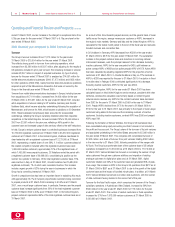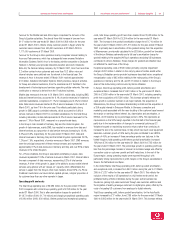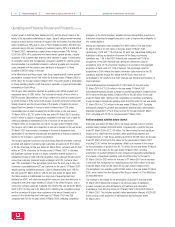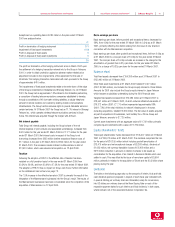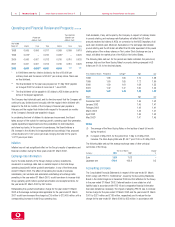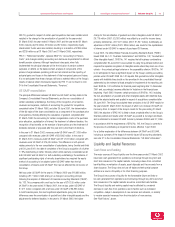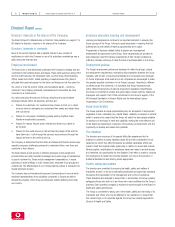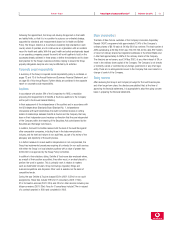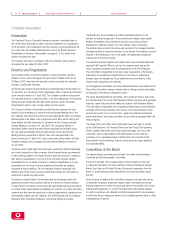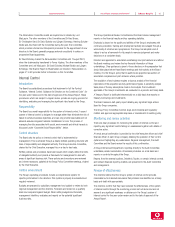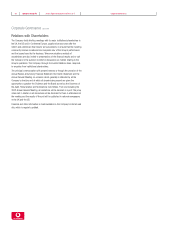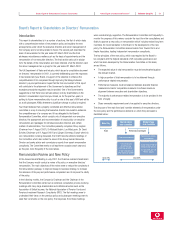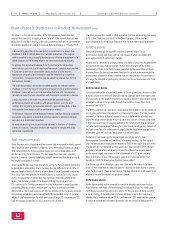Vodafone 2002 Annual Report Download - page 50
Download and view the complete annual report
Please find page 50 of the 2002 Vodafone annual report below. You can navigate through the pages in the report by either clicking on the pages listed below, or by using the keyword search tool below to find specific information within the annual report.
Vodafone Group Plc Annual Report & Accounts and Form 20-F Operating and Financial Review and Prospects48
Operating and Financial Review and Prospects continued
3G network for 3G service is expected to be J-Phone Vodafone. The Group’s
major European markets expect to open their 3G networks towards the end
of the 2002 calendar year, with others planned throughout 2003 and 2004.
The network rollout programme continues to be influenced by the availability and
delivery of commercial quantities of dual mode GSM/3G handsets. The Group’s
3G networks are expected to provide even more capacity, greater spectrum
efficiency and faster transmission speeds and are expected to enhance the
platform for more sophisticated products such as video streaming and picture
messaging. 3G technology is expected to enhance the ability for mobile to
substitute for fixed telephone services in the provision of voice and narrow-band
data services, as well as for some broadband applications. Further details on the
Group’s 3G network roll-out programme can be found under “Information on the
Company – Business Overview – Third generation licences and network
infrastructure”, above.
The 3G auction and award process has resulted in an increased number of
competitors in most of the Group’s markets. However, the high cost of obtaining
3G licences and the associated capital expenditures relating to the design and
rollout of 3G network infrastructure has had implications for the strategies of
mobile operators in those countries some of whom have looked to form
partnerships with other content and portal providers and to exploit relationships
with operators in lower cost markets. The strategy of many mobile operators
has been to develop pan-European operations and this is likely to lead to
further consolidation and partnerships among operators and to increased
competitive pressures.
Capital expenditure on tangible fixed assets for the year ended 31 March 2002
was £4,145 million. Tangible capital expenditure for the 2003 financial year is
expected to be approximately £6.0 billion, less than previously indicated as a
result of a combination of revised network planning and increased efficiencies,
particularly in Japan. Incremental spend on 3G infrastructure is expected to
represent approximately 30% of total capital expenditure in the 2003 financial
year, as expenditure on 2G network capacity is curtailed and 3G network
expenditure is increased to coincide with service launch and handset availability.
Capital intensity, measured as the ratio of capital expenditure to statutory
turnover, was 18% for the 2002 financial year, after including capital expenditure
on 3G network infrastructure which is not expected to generate turnover until
later in the 2002 calendar year. In the 2003 financial year, capital intensity is
expected to increase slightly due to the full year’s inclusion of J-Phone Vodafone.
Thereafter, in most countries, capital expenditure is expected to fall below
10% of revenues by 2008.


